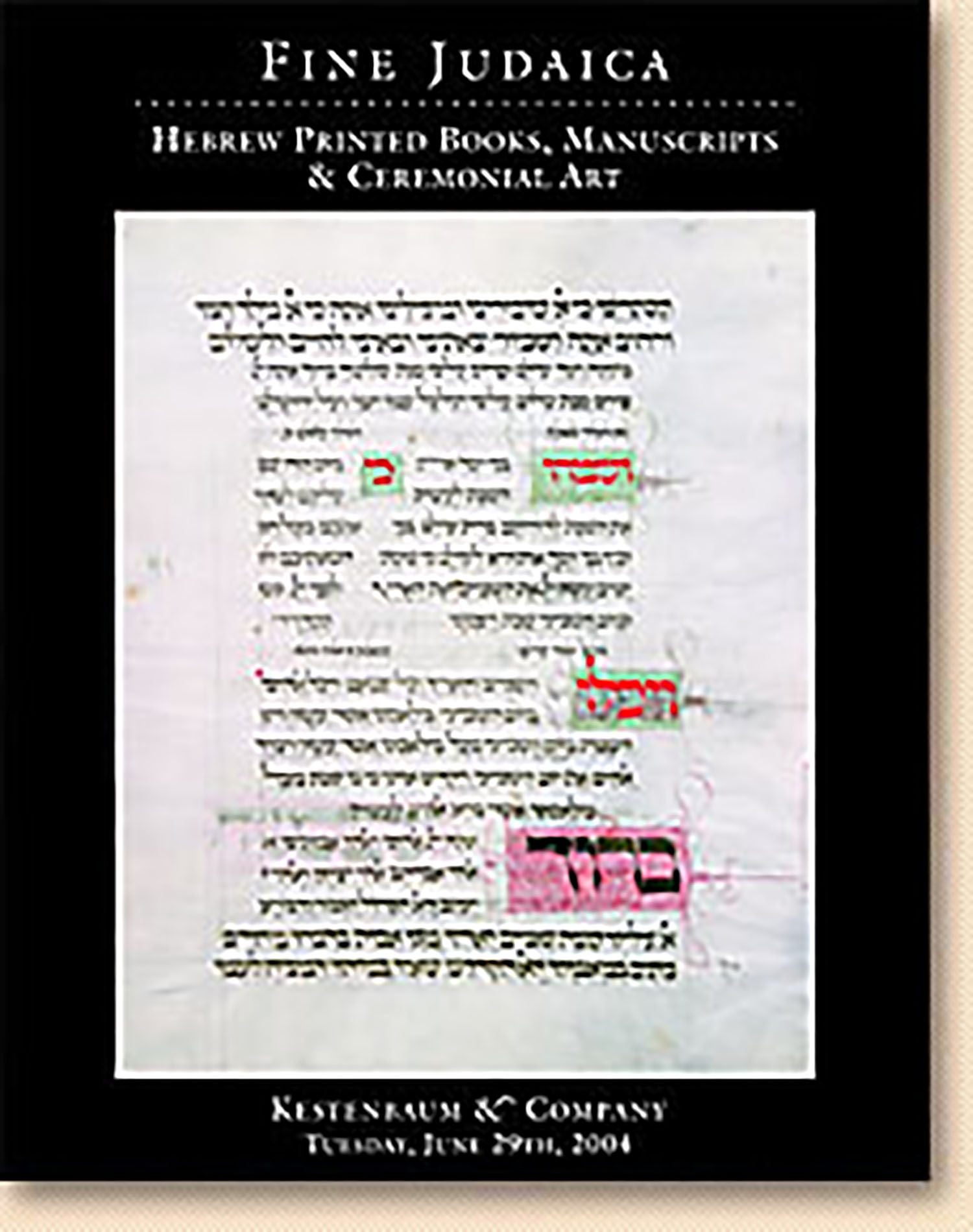Ex Ordinatione Inclyti Regni Gubernii [Laws concerning the Jews of the Habsburg Empire, specifically Prague, their religion, education, the constitution of their community, their population, foodstuffs, etc. ]

AUCTION 24 |
Tuesday, June 29th,
2004 at 1:00
Fine Judaica: Printed Books, Manuscripts, Ceremonial Art and Holy Land Maps Including Ceremonial Art from the Collection of Daniel M. Friedenberg
Lot 35
(AUSTRIA).
Ex Ordinatione Inclyti Regni Gubernii [Laws concerning the Jews of the Habsburg Empire, specifically Prague, their religion, education, the constitution of their community, their population, foodstuffs, etc. ]
Vienna: 3rd August 1797
Est: $3,000 - $4,000
The benighted Emperor Francis II subjected his Jewish subjects to rigid and stern laws. In this new edict, every rabbi is required by law to take a course of philosophical studies (par. 3). Another paragraph (no. 6) discusses the status of the “Schulsinger, der sogenannte Schames” (synagogue singer, the so-called “schamess”). Circumcision is to be performed only by those medically competent to perform the operation (par. 42). Should a family wish to conduct a private prayer service, complete with Torah reading, an annual tax of 50 florin must paid (par. 11).
The notorious Familiant Laws, limiting the number of marriage permits issued, and thus severely curbing the growth of the Jewish population, are here reinforced (pars. 25-35). The number of Jewish families was to be frozen at 8,600 which was the number of families counted in the 1789 census (par. 26). When a foreign Jewess is to marry a Jew from a native Bohemian family, a marriage permit can be granted if the foreigner brings into the land a fortune of no less than 5,000 gulden (par. 35).
The historic Bohemian Jewish community comes under especial scrutiny. There are detailed instructions for the administration of the community (pars. 19-20).
See JE, Vol. II, p. 332; Raphael Mahler, Hasidism and the Jewish Enlightenment: Their Confrontation in Galicia and Poland in the First Half of the Nineteenth Century (Philadelphia, 1985)
